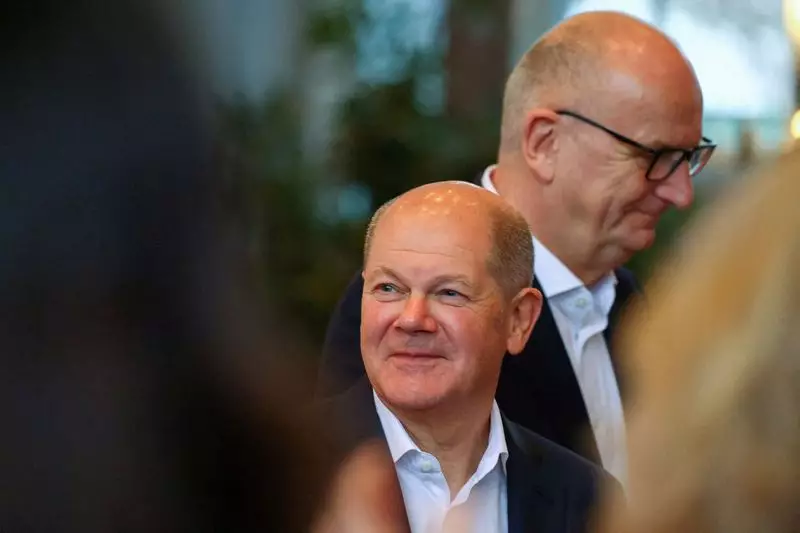Germany finds itself standing at a political crossroads as Chancellor Olaf Scholz prepares to address the parliament with a formal request for a vote of no confidence against himself. This rare and dramatic move comes in light of a significant political upheaval caused by the departure of the neoliberal Free Democrats from their coalition. The collapse of the three-party alliance has left Scholz’s Social Democrats and the Greens without a parliamentary majority when the nation is grappling with its most significant economic crisis in decades. How Scholz navigates this turbulent political landscape will undoubtedly shape Germany’s future.
The recent withdrawal of the Free Democrats marked a critical turning point in German politics. The ruling coalition, originally intended to provide stability and effective governance, has unraveled, exposing deep-seated divisions among the parties involved. In such turbulent times, the government’s ability to respond to pressing economic challenges—including rising inflation, skyrocketing energy prices, and tax issues—hangs in the balance. The paradox here is that while Scholz seeks to establish a path toward early elections, he must also act with urgency to pass essential policies and appease the opposition.
Emergency Measures and Political Negotiations
In his upcoming address, Scholz is expected to outline a series of emergency measures aimed at gaining bipartisan support before the scheduled elections on February 23. Among the proposals on the table are tax reductions amounting to 11 billion euros and increases in child benefits, which were previously negotiated with former coalition partners. This necessitates urgent discussions about legislative action that must be taken in an increasingly polarized environment, with the opposition conservatives appearing to hold the upper hand in public opinion polls.
Scholz targets key areas—namely fiscal drag and protection for consumers facing high energy costs. However, political realities complicate these efforts; many conservatives are hesitant to compromise, asserting that they will only engage in discussions about proposals that could be deemed immediately necessary. This stance places added pressure on Scholz as he tries to orchestrate a recovery agenda while preparing for electoral uncertainty.
The Role of Tradition and Institutional Safeguards
Germany’s political framework features robust mechanisms designed to mitigate the chances of unstable coalitions reminiscent of the Weimar Republic, which contributed to the rise of fascism in the 1930s. German President Frank-Walter Steinmeier emphasized the importance of tradition in forming a stable government swiftly. His largely ceremonial role, while peacekeeping in nature, also carries significant weight in guiding the dissolution of parliament and the call for elections at the chancellor’s discretion.
A lengthy and complex process lies ahead of Scholz and the parliament, making it essential for all parties involved to navigate these political waters with caution. The intricacies of the no-confidence vote could yield unexpected outcomes; if Scholz manages to maintain backing from the SPD and the Greens, it would complicate his potential resignation while still having the support of parties that he has previously resisted aligning with ideologically.
Opposition parties have been quick to capitalize on the government’s vulnerability, with conservatives already harnessing public discontent to bolster their standing in polls. Traditional policy aims, such as extending a subsidized transport ticket, have gained traction among the electorate, positioning the conservatives as pro-active agents against what they frame as government inertia.
Moreover, the far-right Alternative for Germany party could complicate the landscape further by positioning itself strategically on the confidence vote, as other parties eschew any collaboration with them. Their potential role could introduce a new dynamic, signaling an unpredictable political climate.
Germany is poised for transformation as it navigates the convergence of internal politics and pressing socio-economic challenges. Chancellor Scholz’s next steps, including the difficult balancing act of managing opposition relations while contending for continued governmental authority, will likely dictate the nation’s trajectory in the weeks leading up to elections. The importance of these decisions extends beyond party politics, suggesting that they will significantly influence Germany’s stability in an increasingly competitive European landscape. How this situation unfolds will not only drive domestic policy but also resonate across Europe, highlighting the fragility of governance amidst rising populism and shifting political alliances.

